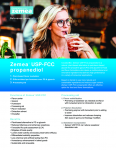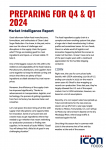Dispatches from the ISA conference
‘No artificial’ claims are undermining confidence: ISA chair

Speaking at the International Sweetener Association (ISA) conference in Brussels, Heezen told experts from academia and the food and beverage industry that the industry itself may be undermining the perceived safety of sweeteners – and other ingredients – by reformulating products to remove artificial and synthetic ingredients.
The ISA chairman argued that such labels only serve to reinforce misconceptions about the safety and efficacy of sweeteners. He said that by placing different, and often conflicting, labels and messages on different products within the same range or brand “manufacturers are hurting themselves, their consumers, and the wider public.”
Safety and the media
The ISA conference brought together scientific experts and food industry players to address the role of sweeteners in weight loss and appetite control, and highlight the safety and effectiveness of sweeteners.
Conference speakers included Andrew Renwick, Emeritus Professor at the University of Southampton, and journalist Trevor Butterworth, editor of STATS.org. They highlighted “a huge amount” of well performed and independently assessed evidence backing the safety of sweeteners, and said that many of the studies to suggest risks are very small and poorly performed.
Renwick explained that there are strict regulatory procedures which must be followed for a sweetener to be approved for use in the diet. He said that sweeteners used in foods and drinks have are subjected to comprehensive safety reviews before they are approved.
Butterworth added to the debate, arguing that the public image of low calorie sweeteners has been the victim of bad science:
“The weight of considered scientific evidence, the result of careful, independent, expert scrutiny, again and again shows that there is no evidence of a risk to health.”
“To argue otherwise, to turn problematic and discredited studies into certain, inviolable pronouncements, to intimate grand and global conspiracies, is to scare the public into abandoning an invaluable weapon in the fight against obesity,” he said.
Prof. Renwick added that when it comes to the safety of all food ingredients – not just sweeteners – much of the media will “jump on any negative links” but generally ignore a wealth of evidence, including regulatory approvals and known dose response relationships.
“‘Sweeteners judged to be safe by regulators’ as a headline does not sell newspapers, unfortunately it’s the scare stories that do,” he commented.













